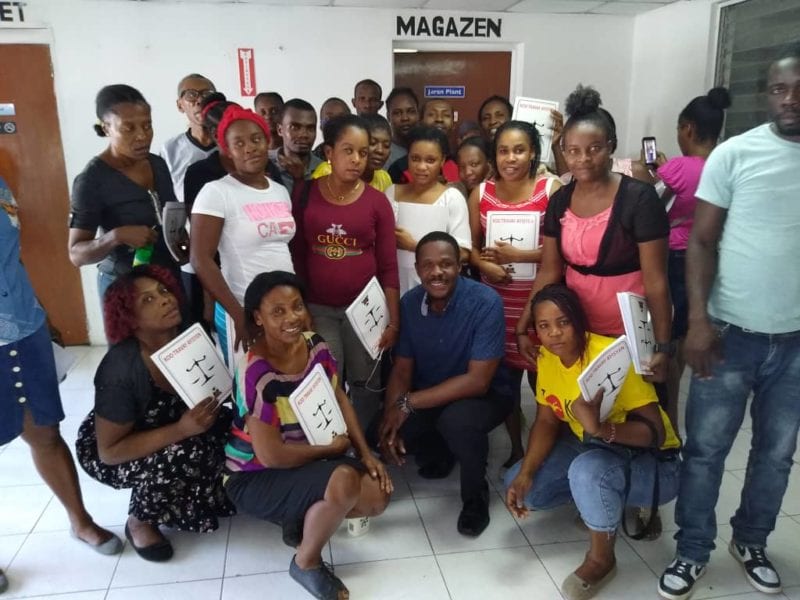
In Haiti’s export apparel industry, the Solidarity Center joins with unions to educate workers about their rights under national and international labor laws. Credit: Olton dorvelus
In Haiti, the Solidarity Center provides training and mentoring support for union organizing and advocacy campaigns, and assists workers in building sustainable, democratic and inclusive unions.
Finding decent work in Haiti is a fundamental challenge. Most workers are engaged in informal economy jobs, and weak labor protections leave workers vulnerable to severe exploitation, such as low wages and inappropriate working conditions, such as sexual harassment and other forms of gender-based violence. Solidarity Center studies repeatedly have demonstrated the daily minimum wage is
far less than the estimated cost of living in Haiti. More than 6 million of Haiti’s population of 10.4 million (59 percent) lives below the national poverty line of $2.41 per day, and more than 2.5 million (24 percent) fall below the national extreme poverty line ($1.23 per day).
In Haiti’s export apparel industry—composed primarily of women and the largest source of formal economy jobs in Haiti—the Solidarity Center joins with unions to educate workers about their rights under national and international labor laws. The Solidarity Center also works with unions to mobilize workers to build and balance power, advocate for wage increases and improved labor laws, and connect with global allies to leverage support for fair labor standards and labor law compliance.

 In Haiti’s export apparel industry, the Solidarity Center joins with unions to educate workers about their rights under national and international labor laws. Credit: Olton dorvelus
In Haiti’s export apparel industry, the Solidarity Center joins with unions to educate workers about their rights under national and international labor laws. Credit: Olton dorvelus
